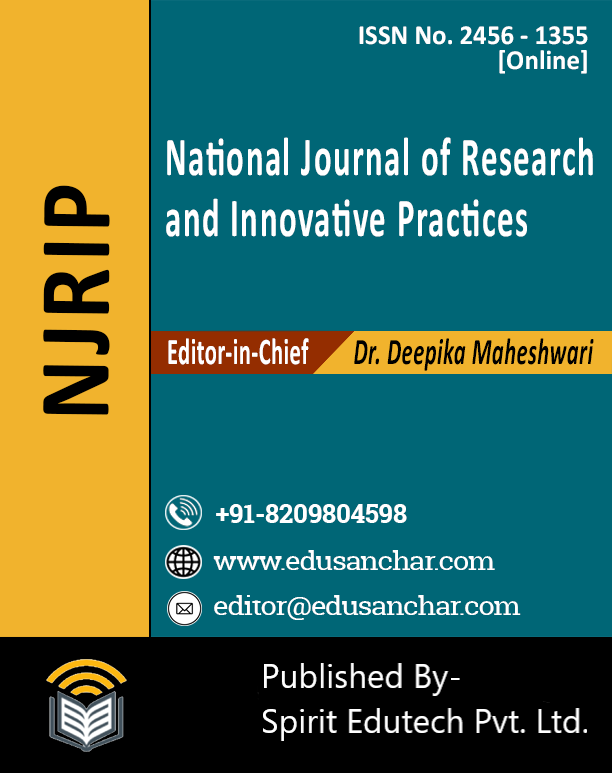
An Appraisal of Women’s Property Rights in India
Author Name :- Shailesh Sharma,,
Journal type:- NJRIP-National Journal of Research and Innovative Practices
Research Field Area :- Legal Studies and Governance ; Volume 7, Issue 1, No. of Pages: 9
Your Research Paper Id :- 2021011208
Download Published File :- Click here
Abstraction :-
Keywords :-
Property Rights, Rights of Women, Property Rights of Women, Laws for Women
References :-
• Aftab Alam, Human Rights in India : Issues and Challenges 76 (1998)
• Radhabinod Pal, (Tagore Law Lectures) The History of Hindu Law 45 (1930)
• J. Dancan. M. Derret, A Critique of Modern Hindu Law, N. M Tripathi Pvt. Ltd, Bombay (1970), p.193.
• Bryan A. Garner, Black’s Law Dictionary, 10th ed. 2014, p. 335.
• Melanie P.Mejia. ‘`Gender Jihad Muslim woman, Islamic jurisprudence and women’s rights.`` Vol-1, No.1 Kritike, 1-24 (June-2007),available at: http://www.kritike.org
• R.Upadhyay, ``Muslim Personal Law Should it be Politicized``, available at: http:// www.imcindia.com,
• Dr.A.K.Srivastava ``Muslim Personal Law and Rights of Muslim women, A Sociolegal Study’` Vol.3.SCJ.18 (2007)
• Wives submit yourselves unto your husbands” said St. Paul “for the husband is the head of the wife… So let the wives be subject to their own husbands in everything.”
• Prior to the Act, she could sell it only for the necessities of the family or to perform religious ceremonies for the benefit of her deceased husband.
• See Section 14 of the Hindu Succession Act 1956.Section 14 is wide in its ambit. The legislation has defined women’s property in the widest possible manner. The property includes both movable and immovable property acquired by a female by inheritance, partition, in lieu of maintenance, arrears of maintenance, gift from any person, a relative or not, before or after marriage or by her own skill, exertion, by purchase or by prescription or in any other manner whatsoever and also any such property held by her as stridhanam immediately before the commencement of the Act
• Section 6 of the 1956 Act provides: Devolution of interest in coparcenary when a male Hindu dies after the commencement of this Act, having at the time of his death an interest in a Mitakshara coparcenary property, his interest in the property shall devolve by survivorship up on the surviving members of the coparcenary and not in accordance with this Act: provided that if the deceased has left him surviving a female relative specified in class – I of the schedule or a male relative specified in that class who claims through such female relative the interest of the deceased in Mitakshara coparcenary property shall devolve by testamentary or intestate succession, as the case may be under this Act and not by survivorship.
• Sruthi Pandey, “Property Rights of Indian Women. ’’available at: http://www.muslim personallaw.com
• Amrito Das, “Notional Partition, A critique., Section 6 of The Hindu Succession Act 1956’’, J 149 AIR (2004)
• Section .15 of HSA provides general rules of succession in the case of Hindu females.
• The Section.6 of the 2005 (Amendment) Act provides devolution of interest in coparcenary property (1) on and from the commencement of the Hindu Succession (Amendment) Act 2005.
• Dr. Rakesh Kumar Singh, Text Book on Muslim Law 315 (Universal Publishers, New Delhi, 2011)
• Quran 2:228


